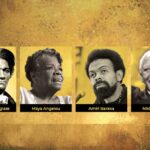As we embark on the sacred journey of Black History Month, it is essential to traverse the corridors of time and unveil the pivotal events that have sculpted the narrative of African American history. Each moment, a brushstroke on the canvas of time, tells a story of resilience, resistance, and triumph. Here, we illuminate some of the key events that have left an indelible mark on the pages of Black history.
1. Emancipation Proclamation (1863): Breaking the Chains
Abraham Lincoln’s Emancipation Proclamation, issued on January 1, 1863, was a watershed moment in the quest for freedom. While it did not instantly free all slaves, it marked a seismic shift in the moral compass of the nation, setting the stage for the abolition of slavery and the eventual passage of the 13th Amendment.
2. Reconstruction Era (1865-1877): A Fragile Promise
The Reconstruction Era followed the Civil War, promising freedom and civil rights to newly emancipated slaves. However, the gains made during this period were short-lived as the rise of Jim Crow laws and systemic discrimination plunged African Americans into a new form of oppression.
3. Harlem Renaissance (1919-1930s): A Cultural Resurgence
The Harlem Renaissance was a cultural and artistic explosion that unfolded in the 1920s, primarily in the Harlem neighborhood of New York City. It saw the emergence of African American literature, music, art, and intellectualism, with luminaries like Langston Hughes, Zora Neale Hurston, and Duke Ellington shaping a new cultural identity.
4. Brown v. Board of Education (1954): Striking Down Segregation
The landmark Supreme Court case, Brown v. Board of Education, declared state laws establishing separate public schools for black and white students to be unconstitutional. This pivotal decision marked the beginning of the end for legal segregation in the United States.
5. Montgomery Bus Boycott (1955-1956): The Power of Nonviolent Protest
Rosa Parks’ refusal to give up her bus seat in Montgomery, Alabama, sparked a year-long boycott, led by a young Martin Luther King Jr. This nonviolent protest against segregated buses marked a turning point in the civil rights movement, showcasing the power of collective action.
6. Civil Rights Act of 1964: Breaking Down Legal Barriers
The Civil Rights Act of 1964 was a landmark piece of legislation that outlawed discrimination based on race, color, religion, sex, or national origin. It was a significant step toward dismantling institutionalized racism and ensuring equal protection under the law.
7. Voting Rights Act of 1965: Empowering African American Voters
The Voting Rights Act of 1965 aimed to eliminate barriers to voting for African Americans. It outlawed discriminatory voting practices that had disenfranchised minority voters, particularly in the South.
8. Black Power Movement (1960s-1970s): Affirming Identity and Equality
The Black Power movement emerged as a forceful response to systemic racism, emphasizing pride in African American identity and calling for economic and political empowerment. Figures like Malcolm X and the Black Panthers became symbols of this movement.
9. Nelson Mandela’s Release (1990) and Apartheid’s End (1994): Triumph in South Africa
The release of Nelson Mandela in 1990 and the subsequent dismantling of apartheid in South Africa marked a global victory against racial oppression. Mandela’s journey from prisoner to president became a beacon of hope for justice and reconciliation.
10. Barack Obama’s Presidency (2009-2017): A Historic Milestone
Barack Obama’s election as the 44th President of the United States in 2008 was a historic moment. His presidency symbolized progress and shattered racial barriers, inspiring generations and underscoring the potential for change.
In commemorating Black History Month, it is vital to reflect on these key events that have shaped the course of African American history. They are not merely historical markers but beacons illuminating the ongoing journey towards justice, equality, and a future where the struggles of the past pave the way for a more inclusive and harmonious society.





